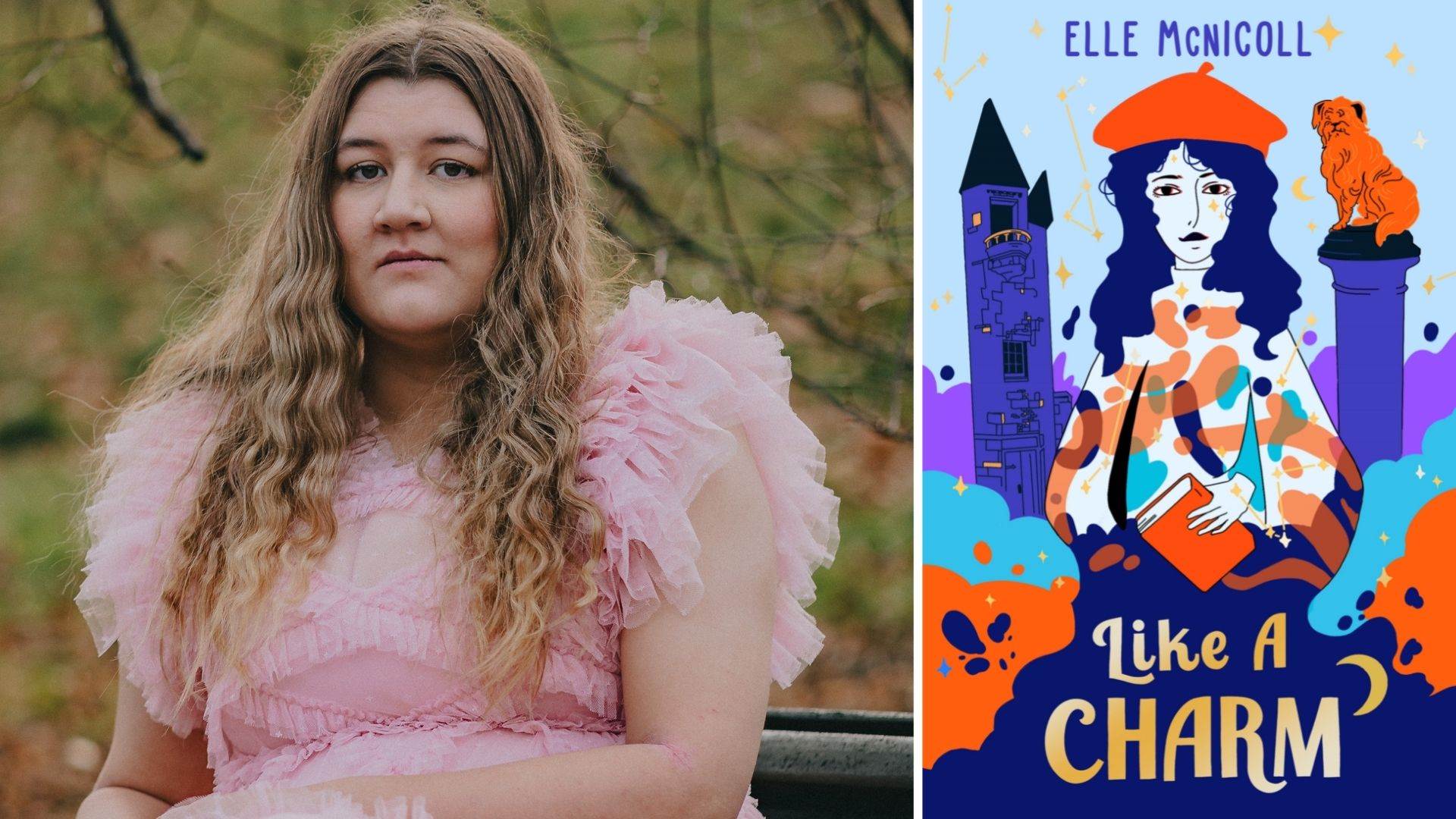"The world needs unapologetically neurodivergent characters": Elle McNicoll on creating a character with Dyspraxia
Published on: 06 April 2022
Elle McNicoll didn't know anything about Dyspraxia when she was diagnosed with it as a child - which is why she wanted to create a character with the condition. Speaking about her third novel for children, Like A Charm, she explains why other neurodivergent children need to see themelves in books.
 Author Elle McNicoll photographed by Aashfaria A. Anwar
Author Elle McNicoll photographed by Aashfaria A. Anwar
"Do you mean Dyslexia?"
It’s a line from my third novel, Like A Charm, for a reason. The heroine, Ramya Knox, is a young witch who possesses an incredible gift: she can see through ‘Glamour’, the armour that magical people use to disguise themselves from humans. It’s a fun, twisty, urban fantasy set in my hometown of Edinburgh and I have loved my readers’ responses.
Ramya is also Dyspraxic. It was important and predestined for me that this was so. When I was a young person, I needed a scrappy witch who was open about her learning difficulties, so I wrote about one and gave her an assortment of adventures. Because I am Dyspraxic, too.
I was diagnosed with Dyspraxia between the ages of nine and ten and I don’t remember a single person seeming to know what that meant, let alone reading about it in a fantasy story.
Growing up with Dyspraxia
Appointment after appointment with an occupational therapist involved me doing multiple activities that I found tiring and stressful but the hardest part was the fact that nobody, at any stage, sat me down to explain what it was they were looking for. They did not even outline the basics of the condition. A conversation about processing or motor skills or balance would have helped. Contextualising the condition within the life I was living would have helped me verbalise when I needed help. Instead, I was given a label with no real background information and told that I would be attending additional needs workshops.
My self-esteem plummeted.
There is nothing wrong or shameful or bad about having a learning difficulty, about being neurodivergent. But no one told me that.
No one told me that it was just a differently wired brain, which sometimes presented challenges when placed in a one-size-fits-all, post industrial environment. It felt like the final years of primary school, and the entirety of secondary school, were fashioned around trying to mould me into a neurotypical person. I felt as if I was failing every single day.
Reflecting upon it now, it didn't need to be that way. There are ways to assist and provide for disabled and/or neurodivergent students without making them feel like burdens. I feel that there is much more understanding and positive intervention happening in schools now, when I visit as an author, but twenty years ago, you were a tangle that needed to be brushed out.
 Author Elle McNicoll photographed by Aashfaria A. Anwar
Author Elle McNicoll photographed by Aashfaria A. Anwar
The Single Story
I talk about representation a great deal as an author. All of my books feature openly neurodivergent main characters, and they always endeavour to promote agency and self-acceptance over conformity. I think, when it comes to disability representation in children’s books, there is still something of a disconnect.
Many publishers seem to believe the only story about disability worth telling is one of trauma, sadness and, in many cases, death. I shudder when I see these stories thrown at cheerful young readers who happen to be neurodivergent. I do not believe that they should only be allowed to read stories that are sad and melancholic. I do not believe they should only see themselves as victims or burdens or someone to be pitied or mourned. I do not believe they should only be featured in stories that are PSHE aids or educational devices.
I want to write books that have a universal appeal, where story and character come first, and neurodivergence is the lens that the character possesses. I want my protagonists to be aspirational, not educational. I want readers to rush to turn the page, not feel as if they are being lectured.
Like A Charm
When I first sat down to begin my third novel, Like A Charm, I knew Dyspraxia was going to be the lens. It involved pulling out memories from a time which was so formative. Medical appointments, meetings at school, special workshops, handwriting aids.
However, more importantly, it involved drawing out those old feelings. Remembering what it felt like to be ten and scared and confused. I explored a lot of that within the story, with lots of magical elements thrown in.
The response to Ramya and her adventure has been overwhelming. Seeing so many little girls dressed up as Ramya on World Book Day was vindication. A relatable, sometimes aspirational, character was the focus of the book and not the condition. It’s a fine balance that I always want to make, but one that is important to me.
I’m not interested in cures
Nothing is going to cure the brain that I have, nor would I want it to. It took years to unlearn all of the vocal and silent messages that I had been hearing since my diagnosis, and I have no interest in a narrative that involves ‘defeating’ the condition, or moulding into a better fit for the neurotypical world. I have three novels: a contemporary story that is being adapted for television; a sophomore science-fiction that explores AI and the virtual world; and a fantasy story about mythology and seeing through what is not real.
Three very different books, in very different genres, but there is one through line that connects all of them. They are unapologetically neurodivergent.
My heroines end each story knowing exactly who they are and accepting it. It took me twenty years to get there. They’re not going to waste time the way I did. They’re not going to listen to the negative inputs of people who do not matter. They’re going to do better.
Like a Charm by Elle McNicoll is out now, published by Knights Of.
Follow Elle on Twitter, read our review of Like A Charm, or explore more books by Elle McNicoll below.
Author: Elle McNicoll
When 11 year old Addie, who is autistic, learns about the 16th century women who were persecuted for witchcraft, she starts to lobby for a local memorial in her small Scottish village. With the help of a new girl at school, she fights valiantly against injustice and oppression.







